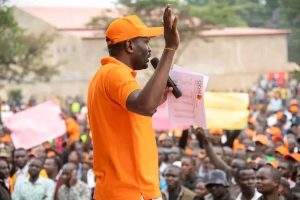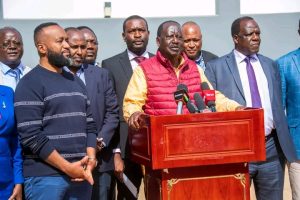Supreme Court Ruling on Trump’s Immunity Sparks National Debate

By Melvis Gala
In a landmark decision that could redefine the boundaries of presidential immunity, the United States Supreme Court ruled on Monday that former President Donald Trump may be shielded from criminal prosecution for actions taken while in office. The ruling, which offered immunity for official acts but left open the possibility of prosecution for unofficial actions, has ignited a fierce debate across the political spectrum.
President Joe Biden, in response to the ruling, emphasized the principle of equality under the law, declaring, “There are no Kings in America.” Biden’s statement underscores concerns that granting immunity for official acts could undermine the fundamental concept of accountability and the rule of law.
Trump, however, hailed the decision as a victory for democratic policies, asserting that it upholds the authority and prerogatives of the presidency. His legal team’s response to the ruling highlighted their strategic maneuvers in navigating a complex legal landscape.
The practical implications of the ruling are far-reaching. It places the responsibility on trial judges to determine which of Trump’s actions during his tenure as president fall under official capacity, a process that promises to prolong the legal proceedings. This development has raised concerns about delays in Trump’s pending cases, including those involving allegations of election conspiracy in Georgia and criminal convictions in New York.
Legal experts warn that the decision could also impact cases involving access to top-secret documents related to national security issues, further complicating matters for ongoing investigations.
“This ruling sets a significant precedent regarding the limits of presidential authority and the scope of legal protections afforded to sitting and former presidents,” remarked constitutional scholar Professor Emily Nguyen of Georgetown University. “The judiciary’s role in interpreting these boundaries will be pivotal in shaping future legal battles.”
The ruling comes at a critical juncture in U.S. politics, with implications extending beyond Trump’s personal legal battles to broader questions about the balance of powers within the government. Analysts predict that the decision will play a pivotal role in the lead-up to the upcoming presidential election, shaping narratives around candidates’ accountability and legal scrutiny.
As the legal saga unfolds, all eyes are on the trial judge tasked with navigating the intricate web of legal precedents and presidential powers. The outcome of these deliberations could redefine the legal landscape for years to come, influencing not only Trump’s future but also the broader contours of American democracy.
In response to the ruling, Trump’s legal team has indicated they will continue to vigorously defend against allegations, leveraging the precedent set by the Supreme Court to shield their client from prosecution for actions undertaken while in office.
The Supreme Court’s decision marks a pivotal moment in U.S. legal history, with profound implications for presidential powers, accountability, and the rule of law. As the nation grapples with the fallout from this ruling, the complexities of Trump’s legal battles underscore the delicate balance between executive authority and judicial oversight in a democratic society.








